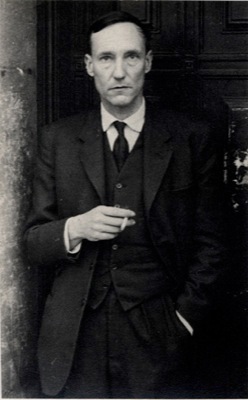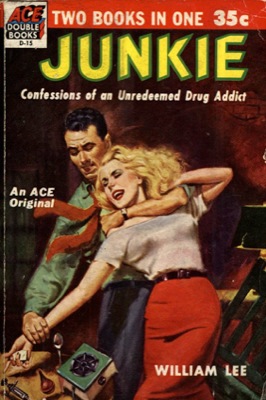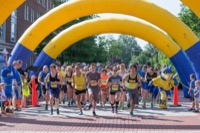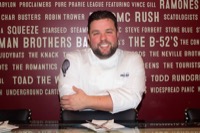

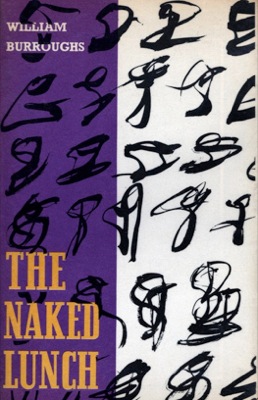
Jan. 28-June 13: Burroughs exhibition
Library to present Burroughs exhibition 'Nothing Is True, Everything Is Permitted'
12:19 p.m., Jan. 27, 2014--The University of Delaware Library has announced the new exhibition “Nothing Is True, Everything Is Permitted: William S. Burroughs at 100.”
The exhibition, which celebrates the centenary of the birth of William S. Burroughs, will be on view from Tuesday, Jan. 28, through Friday, June 13, in the Special Collections Exhibition Gallery located on the second floor in the Morris Library.
Events Stories
June 5: Blue Hen 5K
June 6-9: Food and culture series
Burroughs was born Feb. 5, 1914, in St. Louis, Mo., the grandson of William Seward Burroughs, the inventor of the adding machine. He attended private schools in St. Louis and New Mexico and received a bachelor's degree from Harvard University in 1936.
After graduating from Harvard, Burroughs spent time traveling, took graduate courses in psychology and anthropology at Columbia University and Harvard University and eventually moved to New York City in 1943. In New York, he met Allen Ginsberg and Jack Kerouac, friends and writers with whom he was associated for his entire literary career.
For much of the 1950s and 1960s, Burroughs traveled incessantly and lived for various periods in New York, Texas, Mexico City, New Orleans, Paris, Tangier and London. Although his first book, Junky (Burroughs’ preferred spelling), was published in 1953, it was not until his best known work, the highly experimental novel The Naked Lunch was published in 1959 that he began to gain recognition as a writer.
The career of Burroughs as a writer was characterized by ongoing experimentation. He produced a series of writings that expanded upon the techniques he discovered during the composition of The Naked Lunch. His innovative and experimental writing style, his insistence on confronting systems of authority and control, and his explorations of drugs, sex, magic and dreams, perception and reception, utopias and dystopias, technology, art, and the written word radically shifted the landscape of American literature and culture in the 20th century.
During the course of his career, Burroughs wrote 18 novels, six collections of short stories and four collections of essays. He published countless poems, stories and articles in magazines and journals, and he was also an accomplished artist and performer.
Other books by William Burroughs include The Soft Machine (1961), The Ticket That Exploded (1962), Dead Fingers Talk (1963), Nova Express (1964), The Wild Boys: A Book of the Dead (1971), Exterminator! (1973), Cities of the Red Night (1981), The Place of Dead Roads (1984), Queer (1985) and The Western Lands (1987).
Burroughs died in Lawrence, Kan., on Aug. 2, 1997.
Along with Kerouac and Ginsberg, he is considered a primary figure of the Beat Generation and a major influence in popular culture as well as literature. His iconic style, both personal and literary, addressed early themes of gay liberation, deconstructed the linearity of narrative fiction, and influenced cyberpunk and punk rock.
“Nothing Is True, Everything Is Permitted” will feature a wide variety of material covering the prolific Burroughs’ oeuvre, including books, manuscripts, correspondence, photographs, artwork and ephemera, all drawn from the extensive William S. Burroughs holdings in Special Collections.
The curators of the exhibition are Maureen Cech, senior assistant librarian in the Manuscripts and Archives Department, and Timothy Murray, head of the Special Collections Department. An online version of “Nothing Is True, Everything Is Permitted” will be available.
About Special Collections
Holdings of Special Collections of the University of Delaware Library include books, manuscripts, maps, prints, photographs, broadsides, periodicals, pamphlets, ephemera and realia from the 15th to the 21st century. The collections complement the library's general collections with particular strengths in the subject areas of the arts; English, Irish and American literature; history and Delawareana; horticulture; and history of science and technology.




